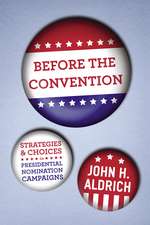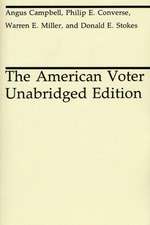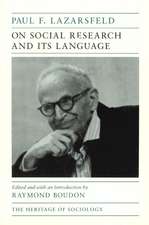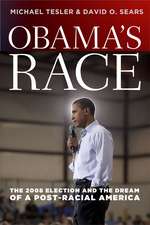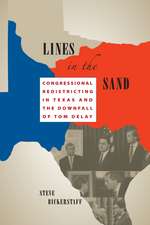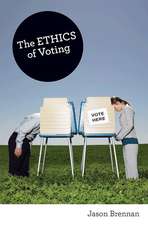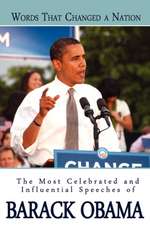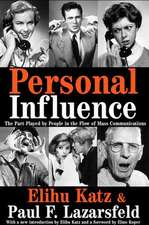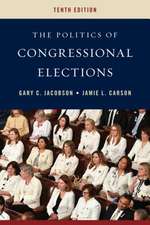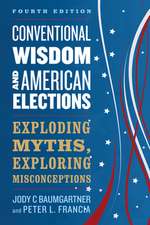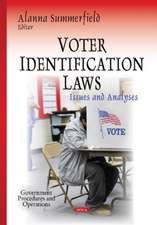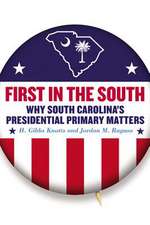Voting: A Study of Opinion Formation in a Presidential Campaign: Emersion: Emergent Village resources for communities of faith
Autor Bernard R. Berelson, Paul F. Lazarsfeld, William N. McPheeen Limba Engleză Paperback – 31 mai 1986
Voting is an examination of the factors that make people vote the way they do. Based on the famous Elmira Study, carried out by a team of skilled social scientists during the 1948 presidential campaign, it shows how voting is affected by social class, religious background, family loyalties, on-the-job relationships, local pressure groups, mass communication media, and other factors. Still highly relevant, Voting is one of the most frequently cited books in the field of voting behavior.
Din seria Emersion: Emergent Village resources for communities of faith
-
 Preț: 144.99 lei
Preț: 144.99 lei -
 Preț: 133.99 lei
Preț: 133.99 lei - 9%
 Preț: 352.50 lei
Preț: 352.50 lei -
 Preț: 146.50 lei
Preț: 146.50 lei -
 Preț: 208.32 lei
Preț: 208.32 lei -
 Preț: 156.84 lei
Preț: 156.84 lei -
 Preț: 115.53 lei
Preț: 115.53 lei -
 Preț: 548.71 lei
Preț: 548.71 lei - 8%
 Preț: 346.31 lei
Preț: 346.31 lei - 8%
 Preț: 360.28 lei
Preț: 360.28 lei -
 Preț: 216.90 lei
Preț: 216.90 lei -
 Preț: 101.43 lei
Preț: 101.43 lei -
 Preț: 215.52 lei
Preț: 215.52 lei -
 Preț: 185.37 lei
Preț: 185.37 lei - 8%
 Preț: 563.24 lei
Preț: 563.24 lei -
 Preț: 179.04 lei
Preț: 179.04 lei -
 Preț: 106.35 lei
Preț: 106.35 lei -
 Preț: 138.81 lei
Preț: 138.81 lei -
 Preț: 273.93 lei
Preț: 273.93 lei -
 Preț: 127.89 lei
Preț: 127.89 lei - 9%
 Preț: 353.24 lei
Preț: 353.24 lei -
 Preț: 176.49 lei
Preț: 176.49 lei -
 Preț: 94.22 lei
Preț: 94.22 lei -
 Preț: 144.80 lei
Preț: 144.80 lei -
 Preț: 126.25 lei
Preț: 126.25 lei -
 Preț: 67.35 lei
Preț: 67.35 lei -
 Preț: 163.52 lei
Preț: 163.52 lei -
 Preț: 138.26 lei
Preț: 138.26 lei -
 Preț: 182.98 lei
Preț: 182.98 lei - 18%
 Preț: 502.35 lei
Preț: 502.35 lei - 18%
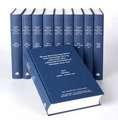 Preț: 2261.34 lei
Preț: 2261.34 lei -
 Preț: 279.55 lei
Preț: 279.55 lei -
 Preț: 116.07 lei
Preț: 116.07 lei -
 Preț: 208.55 lei
Preț: 208.55 lei -
 Preț: 167.85 lei
Preț: 167.85 lei -
 Preț: 160.63 lei
Preț: 160.63 lei -
 Preț: 183.89 lei
Preț: 183.89 lei - 9%
 Preț: 352.77 lei
Preț: 352.77 lei -
 Preț: 307.55 lei
Preț: 307.55 lei - 12%
 Preț: 290.56 lei
Preț: 290.56 lei - 8%
 Preț: 311.68 lei
Preț: 311.68 lei -
 Preț: 120.81 lei
Preț: 120.81 lei -
 Preț: 229.92 lei
Preț: 229.92 lei - 6%
 Preț: 324.95 lei
Preț: 324.95 lei -
 Preț: 145.41 lei
Preț: 145.41 lei -
 Preț: 152.07 lei
Preț: 152.07 lei -
 Preț: 186.09 lei
Preț: 186.09 lei - 18%
 Preț: 348.59 lei
Preț: 348.59 lei -
 Preț: 302.76 lei
Preț: 302.76 lei - 8%
 Preț: 565.01 lei
Preț: 565.01 lei
Preț: 386.06 lei
Nou
Puncte Express: 579
Preț estimativ în valută:
73.88€ • 76.85$ • 60.99£
73.88€ • 76.85$ • 60.99£
Carte tipărită la comandă
Livrare economică 14-28 aprilie
Preluare comenzi: 021 569.72.76
Specificații
ISBN-13: 9780226043500
ISBN-10: 0226043509
Pagini: 416
Dimensiuni: 152 x 229 x 25 mm
Greutate: 0.45 kg
Ediția:Midway Reprint
Editura: University of Chicago Press
Colecția University of Chicago Press
Seria Emersion: Emergent Village resources for communities of faith
ISBN-10: 0226043509
Pagini: 416
Dimensiuni: 152 x 229 x 25 mm
Greutate: 0.45 kg
Ediția:Midway Reprint
Editura: University of Chicago Press
Colecția University of Chicago Press
Seria Emersion: Emergent Village resources for communities of faith
Cuprins
Part I. The Setting
1. The Social and Historical Background: Elmira and the 1948 Election
The Community
The Period
2. The Political Background: Voting Trend and Political Interest
Trend and Pattern of Party Preference
Interest in the Election
Summary
Part II. Social Processes
3. Social Institutions: The Political Role of Labor Unions and Other Organizations
By John P. Dean and Edward Suchman
The Political Activity of Labor Unions
The Politics of Union Members
Politics and Other Forman Organizations
Summary
4. Social Differentiation: Socioeconomic and Ethnic Status
Socioeconomic Status
Minority Religious and Ethnic Status
The Social Transmission of Political Choices
Summary
5. Social Perception: Group Voting Norms
Who Votes for Whom?
Political Perception and Social Distance
Psychological and Social Functions
Summary
6. Social Process: Small Groups and Political Discussion
I. Political Homogeneity in Primary Groups
The Family and Vote
Personal Associations and Vote
II. The Nature of Political Discussion
The Social Group and the Political System
Summary
7. Social Effects of the Campaign: Personal Influence and Political Polarization
I. Voting Changes by Social Units
II. Voting Changes by Time Units
Summary
Part III. Political Processes
8. Political Institutions: Parties in the Local Community
By John P. Dean and Edward Suchman
Party Funds and Leadership
Party Workers—Professional and Amateur
Party Contact with the Citizenry
The Role of the Party
Summary
9. Political Differentiation: Issues in the Campaign
Bases of Consensus
Bases of Cleavage
The Resolution of Differences Over Issues
Summary
10. Political Perception: The Candidates' Stand on the Issues
Perception and Voting
Accuracy of Perception
Inferences: Psychological and Political
Summary
11. Political Processes: The Role of the Mass Media
What the Candidates Did
What the Local Newspapers Did
What the Electorate Did
The Effects of Political Exposure
Summary
12. Political Effects: Leave-taking and Return
Components of the Democratic Trend
Demoralization of the New Deal Majority
The Fair Deal Rally
Psychological and Political Implications
Summary
Part IV. Conclusion
13. The Social Psychology of the Voting Decision
Implementation—a Forgotten Concern
Process Analysis
The Special Significance of Priority Variables
Reactivation—an Example of a "Psychological Mechanism"
The Sociological Approach
Conclusion
14. Democratic Practice and Democratic Theory
Requirements for the Individual
Requirements for the System
Conclusion
Appendixes
A. Summary of Findings from Similar Election Studies
B. Questionnaires and Indexes
C. The Sample of the Study
Index
1. The Social and Historical Background: Elmira and the 1948 Election
The Community
The Period
2. The Political Background: Voting Trend and Political Interest
Trend and Pattern of Party Preference
Interest in the Election
Summary
Part II. Social Processes
3. Social Institutions: The Political Role of Labor Unions and Other Organizations
By John P. Dean and Edward Suchman
The Political Activity of Labor Unions
The Politics of Union Members
Politics and Other Forman Organizations
Summary
4. Social Differentiation: Socioeconomic and Ethnic Status
Socioeconomic Status
Minority Religious and Ethnic Status
The Social Transmission of Political Choices
Summary
5. Social Perception: Group Voting Norms
Who Votes for Whom?
Political Perception and Social Distance
Psychological and Social Functions
Summary
6. Social Process: Small Groups and Political Discussion
I. Political Homogeneity in Primary Groups
The Family and Vote
Personal Associations and Vote
II. The Nature of Political Discussion
The Social Group and the Political System
Summary
7. Social Effects of the Campaign: Personal Influence and Political Polarization
I. Voting Changes by Social Units
II. Voting Changes by Time Units
Summary
Part III. Political Processes
8. Political Institutions: Parties in the Local Community
By John P. Dean and Edward Suchman
Party Funds and Leadership
Party Workers—Professional and Amateur
Party Contact with the Citizenry
The Role of the Party
Summary
9. Political Differentiation: Issues in the Campaign
Bases of Consensus
Bases of Cleavage
The Resolution of Differences Over Issues
Summary
10. Political Perception: The Candidates' Stand on the Issues
Perception and Voting
Accuracy of Perception
Inferences: Psychological and Political
Summary
11. Political Processes: The Role of the Mass Media
What the Candidates Did
What the Local Newspapers Did
What the Electorate Did
The Effects of Political Exposure
Summary
12. Political Effects: Leave-taking and Return
Components of the Democratic Trend
Demoralization of the New Deal Majority
The Fair Deal Rally
Psychological and Political Implications
Summary
Part IV. Conclusion
13. The Social Psychology of the Voting Decision
Implementation—a Forgotten Concern
Process Analysis
The Special Significance of Priority Variables
Reactivation—an Example of a "Psychological Mechanism"
The Sociological Approach
Conclusion
14. Democratic Practice and Democratic Theory
Requirements for the Individual
Requirements for the System
Conclusion
Appendixes
A. Summary of Findings from Similar Election Studies
B. Questionnaires and Indexes
C. The Sample of the Study
Index

